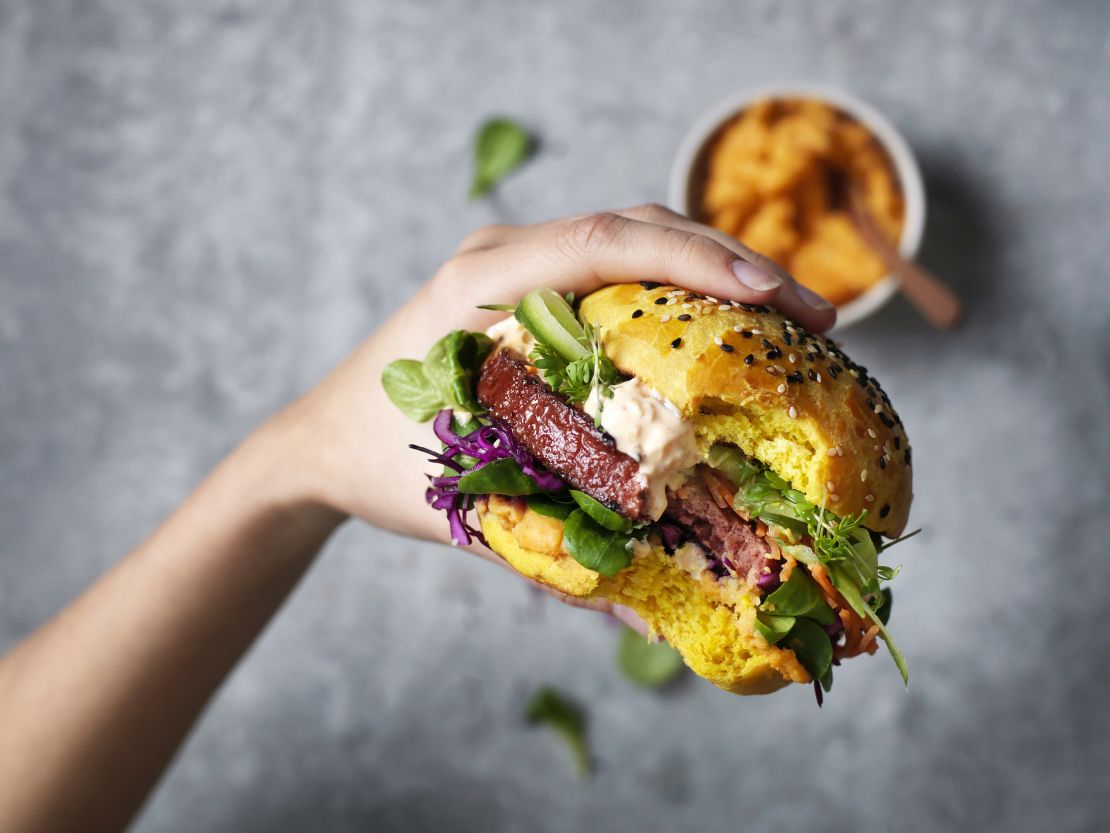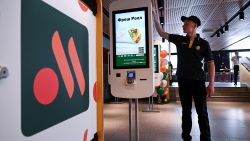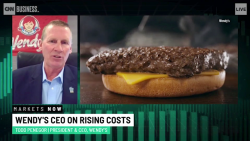McDonald’s is inching closer to getting fully on board the meatless burger bandwagon with a new version in one of its biggest international markets.
The burger chain is now selling a vegan burger, the Big Vegan TS, in Germany, one of its five leading international markets. Nestle is making the meatless patty for McDonald’s, which first started selling the burger late last month.
The plant-based protein trend is growing rapidly as consumers look for ways to eat healthier and reduce their environmental footprints. Unlike veggie burgers, which long had a mediocre reputation, the new proteins are designed to look and taste like meat and to appeal to meat eaters as well as vegans and vegetarians.
Major fast-food chains and food makers are paying attention to the trend and figuring out ways to add the meatless, but meat-like, proteins to their menus.
Burger King first tested a meatless version of its signature Whopper burger in early April, and announced last week that it is planning to roll the sandwich out across the United States. Other chains, including White Castle, Qdoba, Bareburger and others, are selling plant-based menu items as well.

McDonald’s has been slowly adding meatless options to its menu. Two years ago, the company announced the launch of a McVegan burger, made with a soy patty, in Finland and Sweden. McDonald’s partnered with a specialty Norwegian food company called Orkla on that earlier product. The chain also offers veggie burgers on some menus, depending on local demand.
Still, people have been clamoring for a vegan option at McDonald’s (MCD): A Change.org petition accumulated more than 200,000 signatures to bring more plant-based items to the menu.
It’s not clear whether McDonald’s will bring a vegan burger to the United States. A company representative said that “markets decide what’s best for their customers,” adding that “the launch of the Big Vegan TS in Germany is the latest example of that.”
But the company seems to be proceeding with caution. Last month, CEO Steve Easterbrook said during an analyst call discussing first-quarter earnings that the company has to weigh whether adding plant-based menu options is “worth it.” McDonald’s has been trying to streamline its menu to increase speed and efficiency. Adding a meatless burger could complicate things.
Easterbrook noted, though, that the company’s menu teams are paying attention to the trend, and that McDonald’s plans to “stay close to consumer demand.”
If McDonald’s does bring the product to the United States, it may want to consider a rebrand that makes the vegan-ness of the burger less prominent.
In the United States, many restaurants have partnered with Impossible Foods and Beyond Meat to provide the plant-based protein for their menu items. Both of the young companies make plant-based protein designed to look and taste like meat, which is part of the appeal. Burger King, which is using Impossible patties for its Impossible Whopper, said that its product is designed to appeal to meat eaters who want to diversify their diets, rather than vegetarians or vegans.
Beyond and Impossible have made a splash. Impossible said demand has grown so much this year that it’s running out of product. Beyond, which started trading publicly last week, was selling at roughly $80 per share during trading hours on Tuesday — more than triple its $25 IPO price.
“It really is a time of unlimited growth” for the company, Beyond CEO Ethan Brown said last week. By 2023, the US meat-substitute retail market could reach $2.5 billion from $1.4 billion last year, according to the research firm Euromonitor International. Globally, the market could grow from about $18.7 billion in 2018 to $23 billion in 2023, according to Euromonitor International.
And bigger companies like Nestle (NSRGF) want a piece of the market.
Last month, the company launched a plant-based protein product, the Garden Gourmet Incredible Burger, in Europe. The meatless burger is made with soy and wheat protein, and uses beet, carrot and bell pepper extracts to help create a meaty look and texture. Nestle plans to roll out a plant-based burger in the United States under its Sweet Earth brand in the fall.
Tyson Foods (TSN), one of the world’s largest producers of poultry, beef and pork, also plans to start selling a meat substitute.
The product will first enter the market “on a fairly limited basis” this summer, CEO and president Noel White said during an analyst call discussing the company’s second-quarter earnings on Monday. He added that Tyson plans to roll out its meat substitute “on a much larger scale” this fall.

























